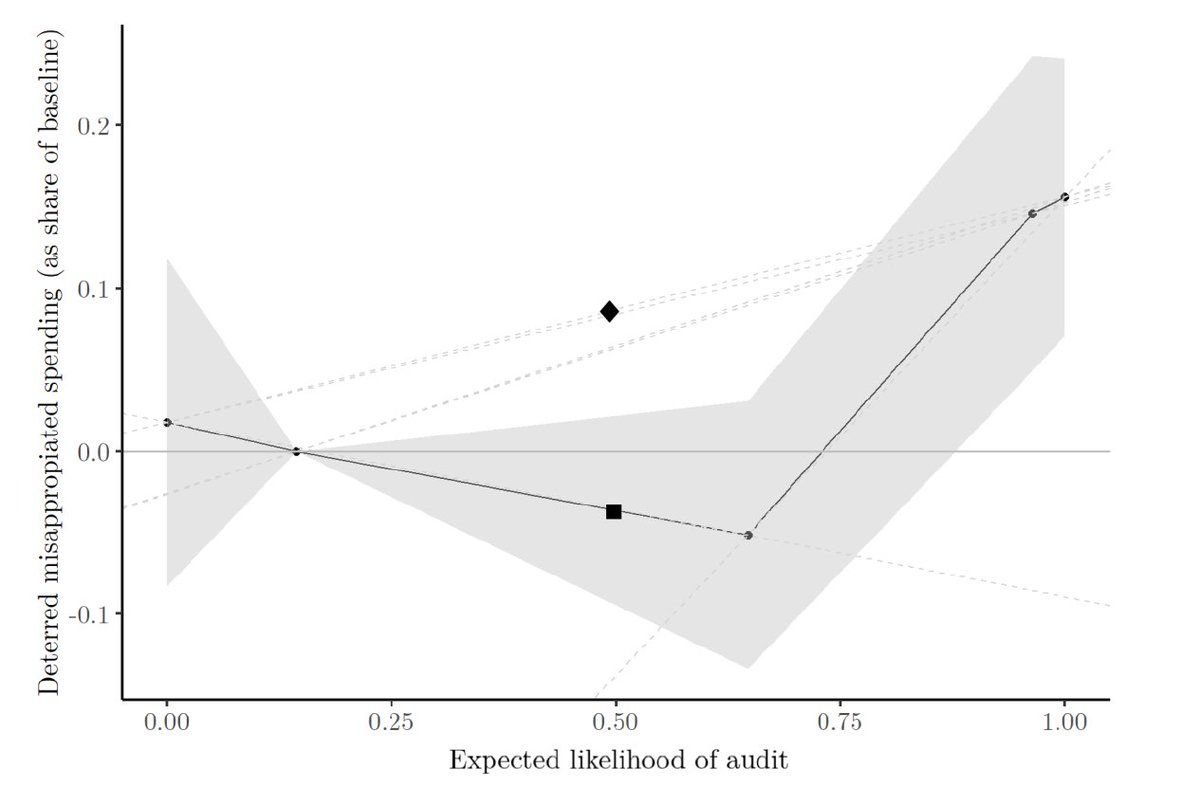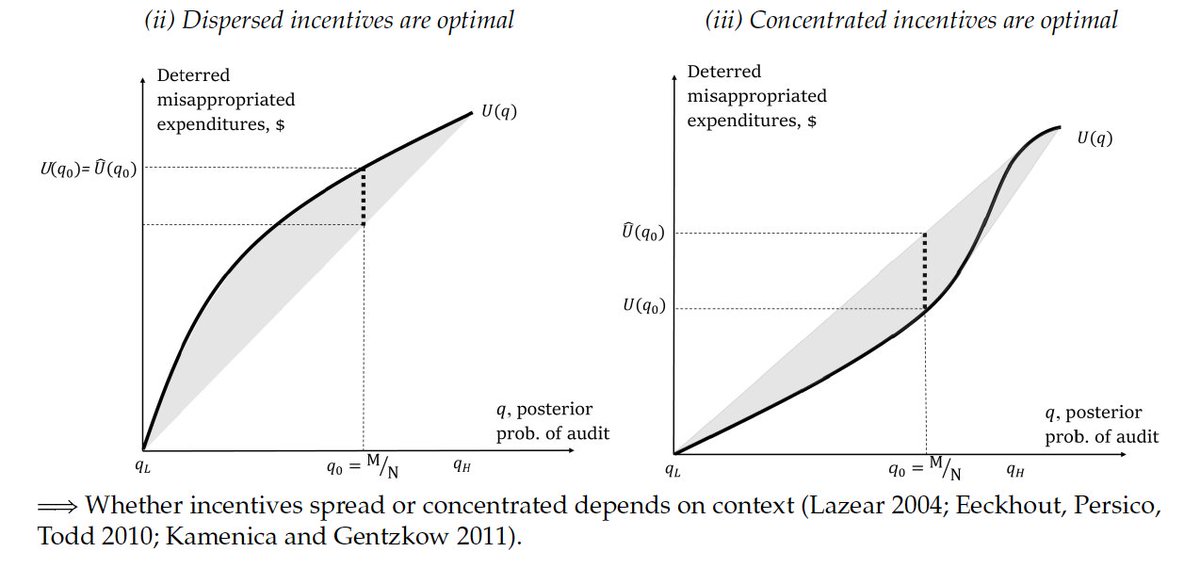If you want to curb corruption and mismanagement, audit people unexpectedly, right? "Be unpredictable!" a certain ex-President once said.
Maybe not.
A thread on @wendynassrwong& #39;s job market paper.
Maybe not.
A thread on @wendynassrwong& #39;s job market paper.
Wendy looked at largest social welfare program in human history: India& #39;s employment guarantee scheme. It gives people public works-style labor when needed.
As @karthik_econ likes to say when people ask him about external validity in India: "WHO CARES?" It& #39;s so huge.
As @karthik_econ likes to say when people ask him about external validity in India: "WHO CARES?" It& #39;s so huge.
Don& #39;t worry, though, there& #39;s a generalizable lesson coming.
Wendy gets program data from Jharkhand, where the timing of audits is randomized. When a local coordinator expects an audit, how do they change their behavior?
Wendy gets program data from Jharkhand, where the timing of audits is randomized. When a local coordinator expects an audit, how do they change their behavior?
Intuitively, most of us think that a small chance of an audit will be enough to change most people& #39;s behavior.
Implicitly, you& #39;re assuming there are decreasing returns to audit risk -- that people will get relatively less responsive as the certainty increases.
Implicitly, you& #39;re assuming there are decreasing returns to audit risk -- that people will get relatively less responsive as the certainty increases.
Also, you probably think that having times with 0 audit risk is just asking for bureaucrats to steal & mismanage.
Well, that& #39;s exactly what Jharkand did: randomize people& #39;s that they have zero risk sometimes, and known, quantifiable risks of audits (low and high) in other years
Well, that& #39;s exactly what Jharkand did: randomize people& #39;s that they have zero risk sometimes, and known, quantifiable risks of audits (low and high) in other years
Wendy suggests our intuition is wrong -- there are times when people have increasing returns to audit risk. This Indian program is one of them.
Bureaucrats don& #39;t ramp up signs of misappropriation when they have 0 risk, and don& #39;t respond to low audit risk. Only high risk.
Bureaucrats don& #39;t ramp up signs of misappropriation when they have 0 risk, and don& #39;t respond to low audit risk. Only high risk.
Think of it like cheating on taxes. Maybe a small risk of audit isn& #39;t enough to deter cheating. Some people will respond to high audit risk only -- a case of these increasing returns to audit risk.
What& #39;s interesting to me is what this implies for organizations that want to curb cheating or corruption or mismanagement -- they have to figure out what kind of subjects they have, and their responsiveness to risk.
For academics, if Wendy& #39;s findings prove correct in other places, I think the next task is to figure out a more general model for what conditions generate increasing or decreasing returns to audit risk. There are implications for taxes, crime, employee management, etc.
Email me, @k_sonin, @LuisRMartinezA or Canice Prendergast for effusive letters!
Finally, the first photo in this thread comes from one of my favorite photography exhibits, "Bureaucratics", by Jan Banning. Check it out: https://www.janbanning.com/gallery/bureaucratics/">https://www.janbanning.com/gallery/b...

 Read on Twitter
Read on Twitter










